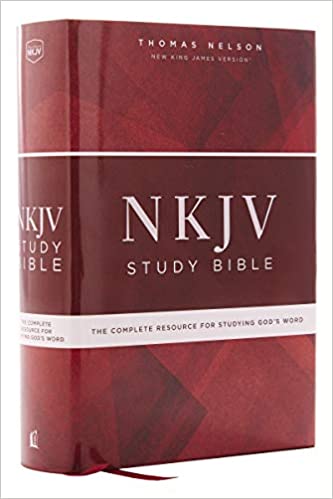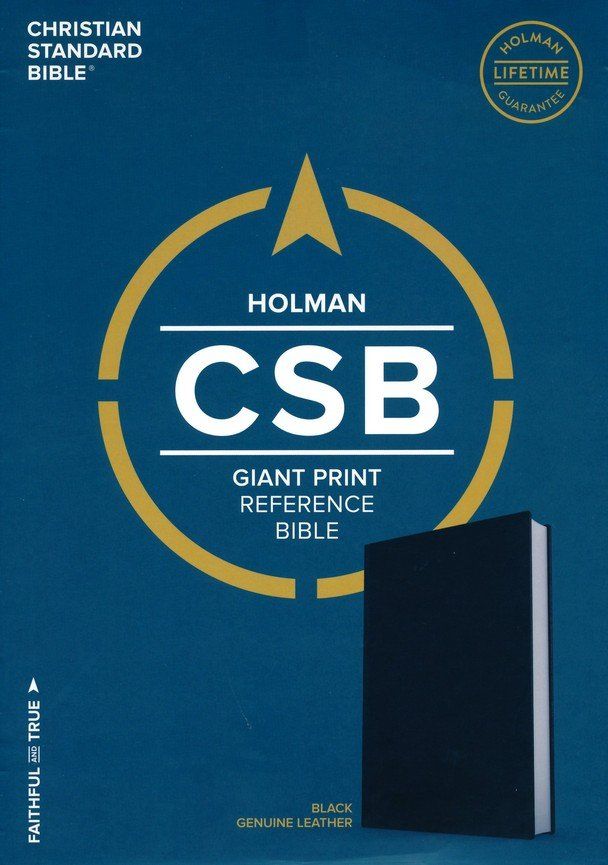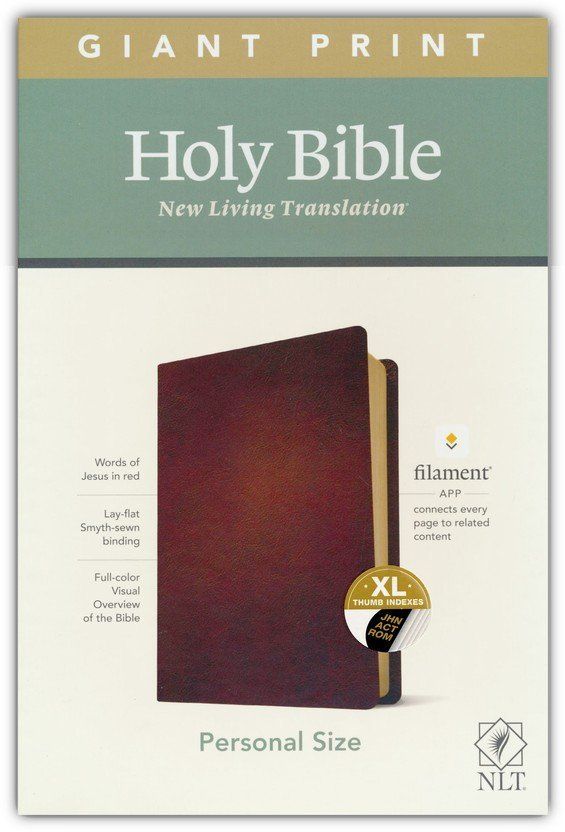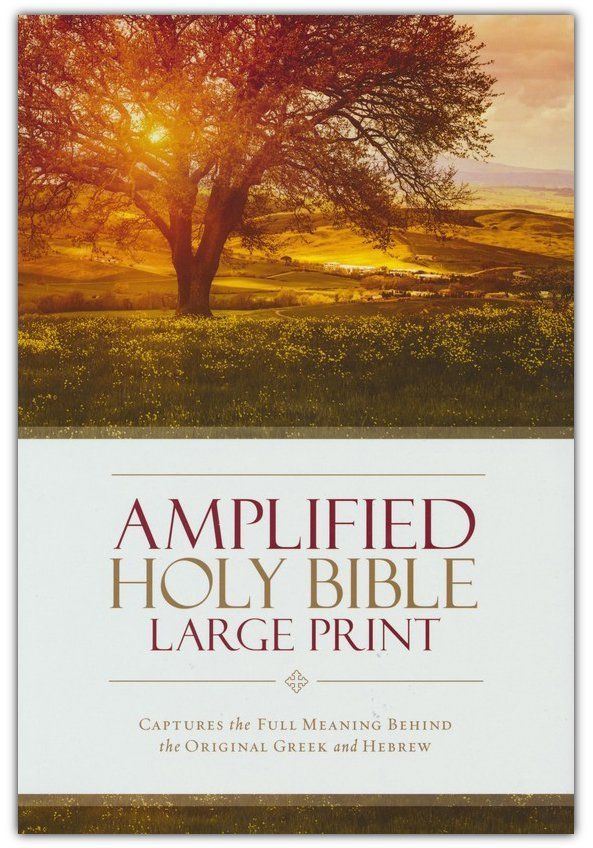Christian Bibles
KING JAMES
The King James Version (KJV), is an English translation of the Christian Bible for the Church of England, which was commissioned in 1604 and published in 1611, by sponsorship of King James VI and I. Noted for its "majesty of style", the King James Version has been described as one of the most important books in English culture and a driving force in the shaping of the English-speaking world.
NEW KING JAMES VERSION
The New King James Version (NKJV) is an English translation of the Bible. The complete NKJV Bible was published in 1982 by Thomas Nelson.The NKJV is described by Thomas Nelson as being "scrupulously faithful to the original, yet truly updated to enhance its clarity and readability." The aim of its translators was to update the vocabulary and grammar of the King James Version, while preserving the classic style and literary beauty of the original 1769 edition of the King James Version. The 130 translators believed in faithfulness to the original Greek, Aramaic, and Hebrew texts including the Dead Sea Scrolls.
NEW INTERNATIONAL VERSION
The New International Version (NIV) is an English translation of the Bible first published in 1978 by Biblica (formerly the International Bible Society). The NIV was published to meet the need for a modern translation done by Bible scholars using the earliest, highest quality manuscripts available. A team of 15 biblical scholars, representing a variety of evangelical denominations, worked from the oldest copies of reliable texts, variously written in Hebrew, Aramaic, and Greek. The NIV was updated in 1984 and 2011nand has become one of the most popular and best-selling modern translations.
ENGLISH STANDARD VERSION
The English Standard Version (ESV) is an English translation of the Bible. The ESV was published in 2001 by Crossway. Crossway describes the ESV as a translation that "emphasizes 'word-for-word' accuracy, literary excellence, and depth of meaning." The ESV continues a legacy of precision and faithfulness in English translation of the original text, begun by William Tyndale's New Testament, and historically followed by "the King James Version of 1611 (KJV), the English Revised Version of 1885 (RV), the American Standard Version of 1901 (ASV), and the Revised Standard Version of 1952 and 1971 (RSV)."
CHRISTIAN STANDARD BIBLE
The Christian Standard Bible (CSB) is a modern English Bible translation of the Christian Bible. The Christian Standard Bible (CSB) is a major revision of the 2009 edition of the Holman Christian Standard Bible (HCSB). The CSB incorporates advances in biblical scholarship to improve upon translation decisions, word choice, and style.
NEW LIVING TRANSLATION
The New Living Translation (NLT) is an English translation of the Bible. The origin of the NLT came from a project aiming to revise The Living Bible (TLB). This effort eventually led to the creation of the NLT—a new translation separate from the LB. The NLT relies on critical editions of the original Hebrew and Greek texts. The New Living Translation used translators from a variety of Christian denominations to create this "thought-for-thought" methodology, making the translation easier to understand.
NEW AMERICAN STANDARD BIBLE
The New American Standard Bible (NASB) is an English translation of the Bible. Published by the Lockman Foundation, the first NASB text—a translation of the Gospel of John—was released in 1960. The NASB New Testament was released in 1963. The complete NASB Bible was released in 1971. The NASB is a revision of the American Standard Version. The Lockman Foundation claims that the NASB "has been widely embraced as a literal and accurate English translation because it consistently uses the formal equivalence translation philosophy."
THE AMPLIFIED BIBLE
The Amplified Bible (AMP) is an English language translation of the Bible produced jointly by Zondervan and The Lockman Foundation. The first edition was published in 1965. It is largely a revision of the American Standard Version of 1901, with reference made to various texts in the original languages. It is designed to "amplify" the text by using additional wording and a system of punctuation and other typographical features to attempt to bring out a clearer meaning to the original texts.
THE MESSAGE BIBLE
The Message: The Bible in Contemporary Language is a version of the Bible by Eugene H. Peterson published in segments from 1993 to 2002. According to the Introduction to the New Testament of The Message, its "contemporary idiom keeps the language of the Message (Bible) current and fresh and understandable". Peterson notes that in the course of the project, he realized this was exactly what he had been doing in his thirty-five years as a pastor, "always looking for an English way to make the biblical text relevant to the conditions of the people".
MODERN ENGLISH VERSION
The Modern English Version (MEV) is an English translation of the Bible begun in 2005 and completed in 2014. The work was edited by James F. Linzey, and is an update of the King James Version (KJV), re-translated from the Masoretic Text and the Textus Receptus. The ecumenical Committee on Bible Translation is composed of 47 American and English scholars from the three major branches of Christianity: Orthodox, Protestant, and Roman Catholic.
Bibles By Translation
- CSB
- ESV
- KJV
- MEV
- AMP
- NASB
- NIV
- NKJV
- NLT
- Spanish
Bibles By Type
- Audio
- Compact
- Devotional
- Gift & Award
- Large Print
- Parallel
- Pew
- Reference
- Software
- Study
Phone: (586) 574-0771
Email: discountbible@att.net
Business Hours: Monday - Saturday 10:00 am – 6:00 pm
Sunday: CLOSED










Address: 26756 Dequindre Warren, Michigan 48091










